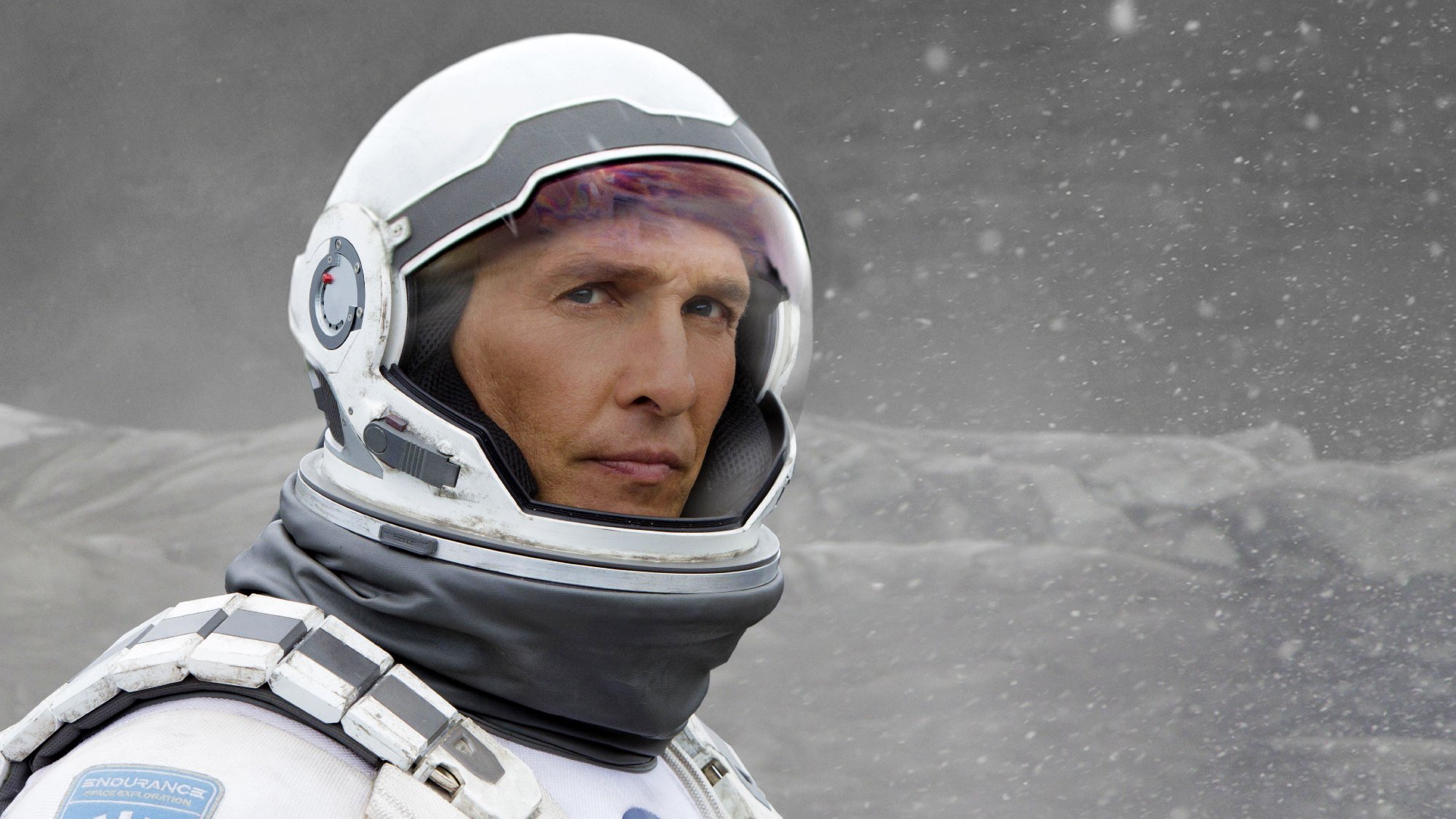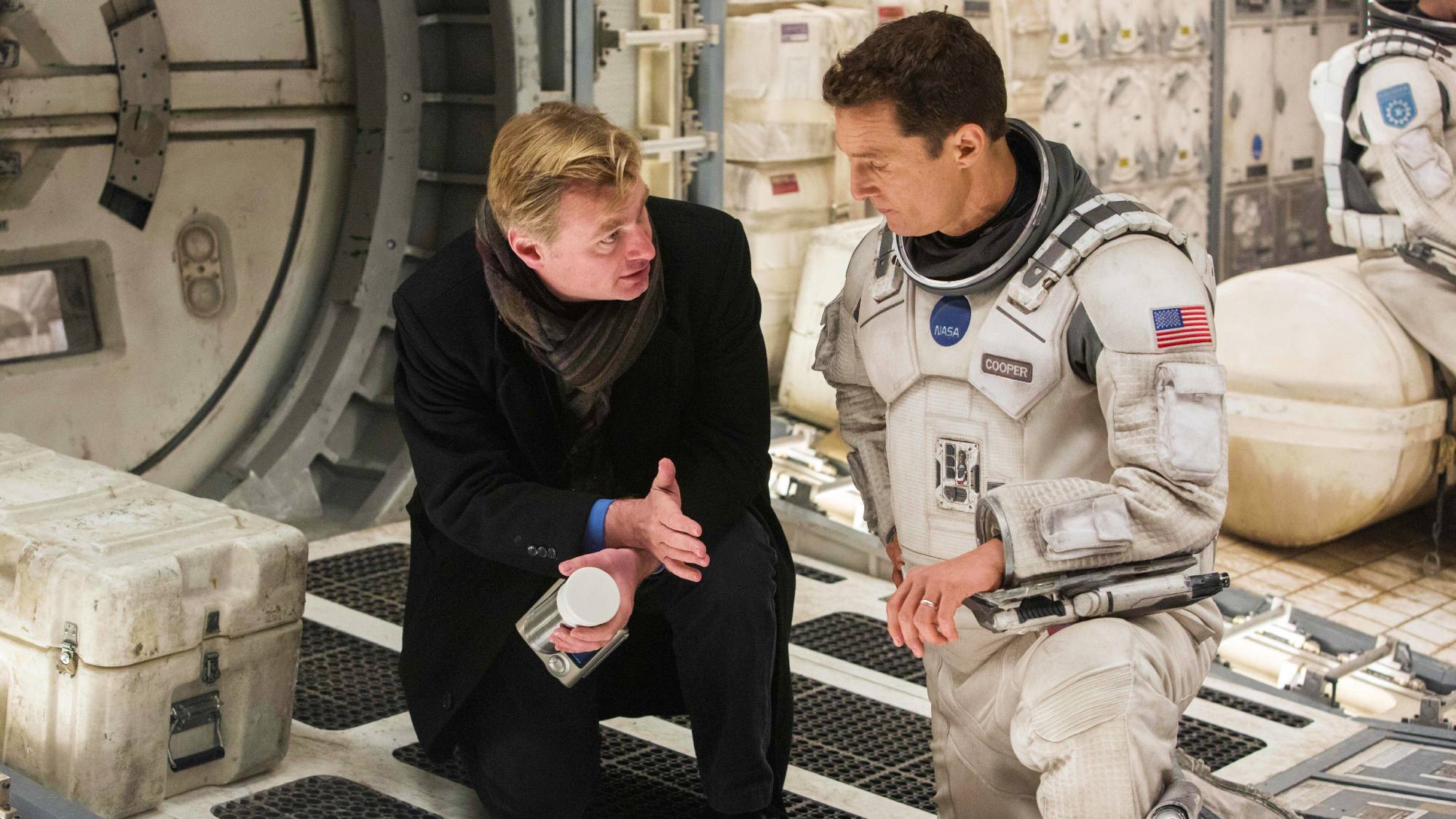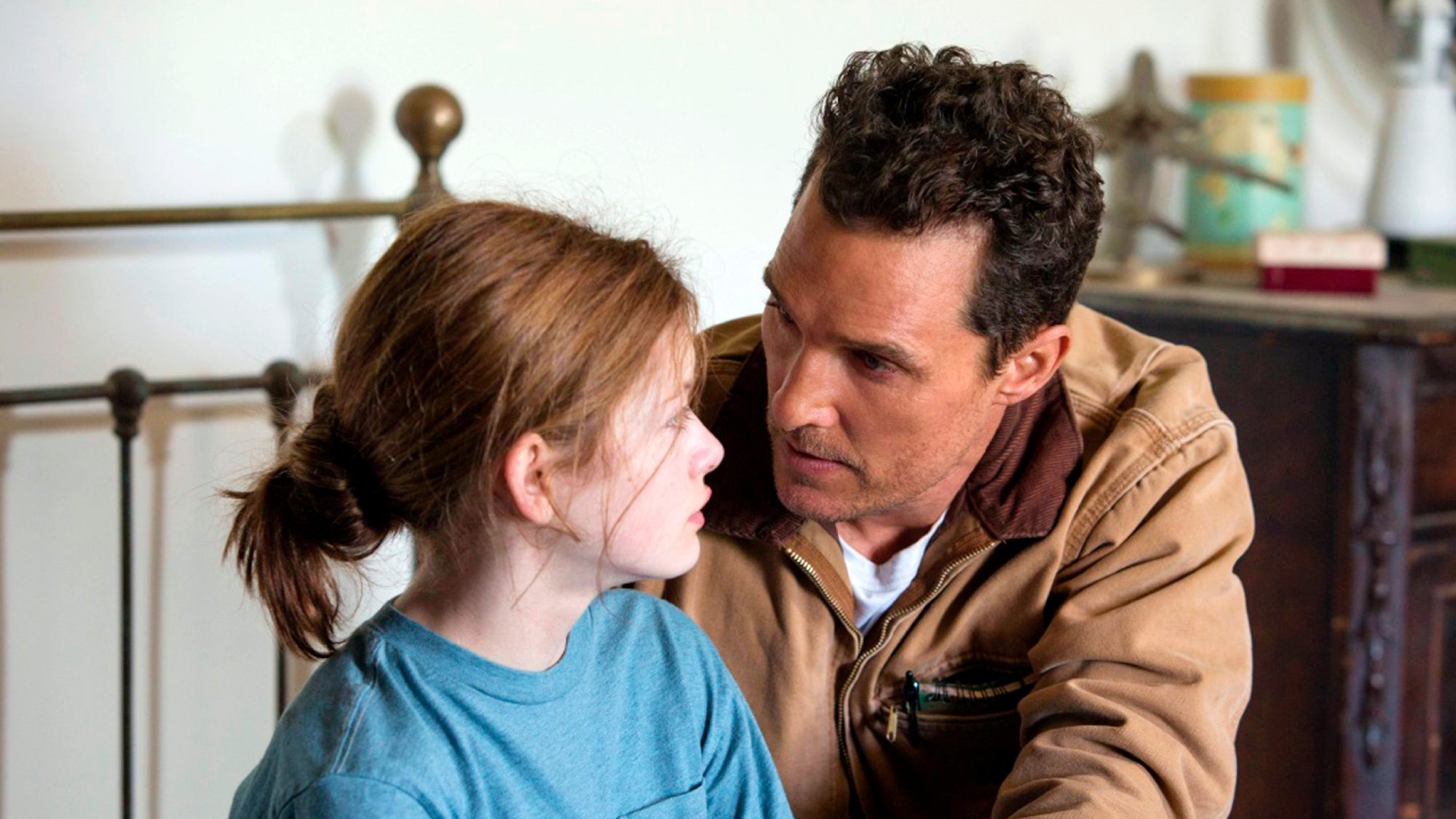
Christopher Nolan is a mad scientist. The British filmmaker is obsessed with manipulating time as a tool to elicit emotional responses. “Memento,” “Inception,” “Dunkirk,” and “Tenet” all explore the concept of time. However, Nolan’s defining use of time as a narrative device happens in “Interstellar.”
“Interstellar” is a sci-fi adventure starring Matthew McConaughey as Cooper, a former NASA pilot who leads an expedition to explore a wormhole near Saturn with planets that could be humanity’s next home. Backed by spellbinding visuals and an emotionally driven plot, “Interstellar” is one of Nolan’s most personal movies that has garnered a dedicated fanbase. The movie’s fandom remains at an all-time high, with nearly every screening sold out this week for the IMAX rerelease to celebrate the 10th anniversary.
“Interstellar” is Nolan like you’ve never seen him before — injecting his own feelings about love and familial relationships into a time travel story. These intimate details have made “Interstellar” one of his best movies.
The final act of the 'McConaissance'
Alright, alright, alright. “Interstellar” cannot be discussed without mentioning the “McConaissance,” the term used to describe McConaughey’s career from 2011 to 2014. Before 2011, the proud Texan’s filmography could be defined by three roles.
The first was Wooderson in Richard Linklater’s “Dazed and Confused.” The cocky and confident McConaughey stole the show as a smooth-talking ladies’ man with an affinity for his car, marijuana, and rock music. Because of the success of “Dazed and Confused,” McConaughey got more parts, leading to his second defining role, Jake Brigance in “A Time to Kill.” With a slick hairstyle and the film’s standout monologue, McConaughey was ready to be a leading man.
Enter the 2000s, and McConaughey enters his rom-com era. While “The Wedding Planner” became a hit, McConaughey became the genre’s poster boy in “How to Lose a Guy in 10 Days,” the third stage of his career. McConaughey is the charming sex symbol and Hollywood’s rom-com king. But the actor needed to change by the end of the decade. Refusing to be typecast, he started to turn down rom-coms, even if they would have resulted in a $14.5 million payday.
After a two-year hiatus, McConaughey enters the McConaissance by taking grittier, more dramatic roles in “The Lincoln Lawyer,” “Bernie,” and “Magic Mike.” The most important film at the beginning of McConaughey’s ascension is 2012’s “Mud.” Jeff Nichols’ coming-of-age drama. Nolan watches “Mud,” and the film inspires him to cast McConaughey in “Interstellar.”

From 2013 to the end of 2014, McConaughey stars in “Dallas Buyers Club,” makes a legendary appearance in “The Wolf of Wall Street,” headlines “True Detective,” wins the Oscar for “Dallas Buyers Club,” and plays the lead in “Interstellar.” McConaughey could not have been more perfect as an outlaw pilot looking to save the world and return home to his daughter.
Nolan’s ensembles are always stacked with top talent. “Interstellar” is no different, with Anne Hathaway, Jessica Chastain, Michael Caine, Casey Affleck, Ellen Burstyn, and Matt Damon. Yet the movie’s emotional core and message rest squarely upon the shoulders of McConaughey. The movie loses its heartbeat if McConaughey can’t deliver the riveting monologues or lead the tense action sequences. In the final act of the McConaissance, McConaughey brought his A-game.
Remarkable visuals paired with an all-time score from Hans Zimmer
Nolan is often characterized as a visual auteur with an innate ability to stage elaborate action sequences and convey emotions through images. Nolan was the perfect filmmaker to tackle space travel and convey how small humanity is in a never-ending galaxy. The visuals of Cooper and the crew traveling through Gargantua are awe-inspiring. The tidal wave on Miller’s planet will put a knot in your stomach as you realize the crew may not survive.
The fight between Cooper and Dr. Mann (Damon) crosscut with the argument between Tom (Affleck) and Murph is a masterclass from Nolan. Mann and Tom may have lost their sanity, but Cooper and Murph are driven by their love for one another and their promise to keep fighting. It’s top-tier symbolism from Nolan.
Hans Zimmer, the maestro behind a sensational score, is the secret weapon in "Interstellar." The story goes that Nolan approached Zimmer to write a piece of music for a single page of work. On the paper was a short story about a father leaving his daughter to complete an important job. The only dialogue written was “I’ll come back” and “When.” Zimmer understood “Interstellar” was rooted in this relationship between a parent and child. The suspenseful music strengthens Nolan’s messages and provides answers to his questions. The chords are slowly developing and grow stronger as each scene progresses.
It’s as if each song starts with a question and answers it by the end of the piece. Memorable songs include “Cornfield Chase,” which begins as a bonding moment and ends with a drone chase through a field; “Mountains,” which captures the dread of an impending tidal wave; and “Where We’re Going,” a triumphant song played during Cooper’s reunion with Murph as he plans for the future.
Christopher Nolan’s most personal and emotional film
For a movie exploring intricate scientific concepts backed by pulsating action sequences, “Interstellar’s” core theme is defined by one word: love. Nolan makes it abundantly clear that “Interstellar” is a father-daughter story and the most personal movie in his filmography. Nolan, who is a father to four children, shot “Interstellar” under the code name “Flora’s Letter,” an ode to his real-life daughter.
Every invigorating action scene — from landing on the water planet and passing through a black hole to the fight with Dr. Mann and the tesseract sequence — all leads back to Cooper and his promise to come home to Murph. Nolan never lets the audience forget that, especially after the debacle on the water planet.

After losing over 20 years, Cooper watches video messages from his family. What starts as a joyful moment quickly turns to anguish as Cooper watches an adult Murph (Chastain) loathe him for leaving Earth. The realization that Cooper may never see his family again brings him to tears. Nolan called this moment the “north star of the film.”
It’s a scene that will go on McConaughey’s highlight reel when his career ends. This gut punch makes the docking scene, a sensational example of human perseverance, and the final reunion between Cooper and Murph much more satisfying. Cooper never gave up because his love for Murphy never died.
When justifying why she prefers to visit Edmunds’ planet, Hathaway’s Dr. Brand says, “Love is the one thing we're capable of perceiving that transcends dimensions of time and space.” Not many filmmakers could craft a $165 million blockbuster around love, but Nolan pulls it off, catapulting “Interstellar” into greatness.







